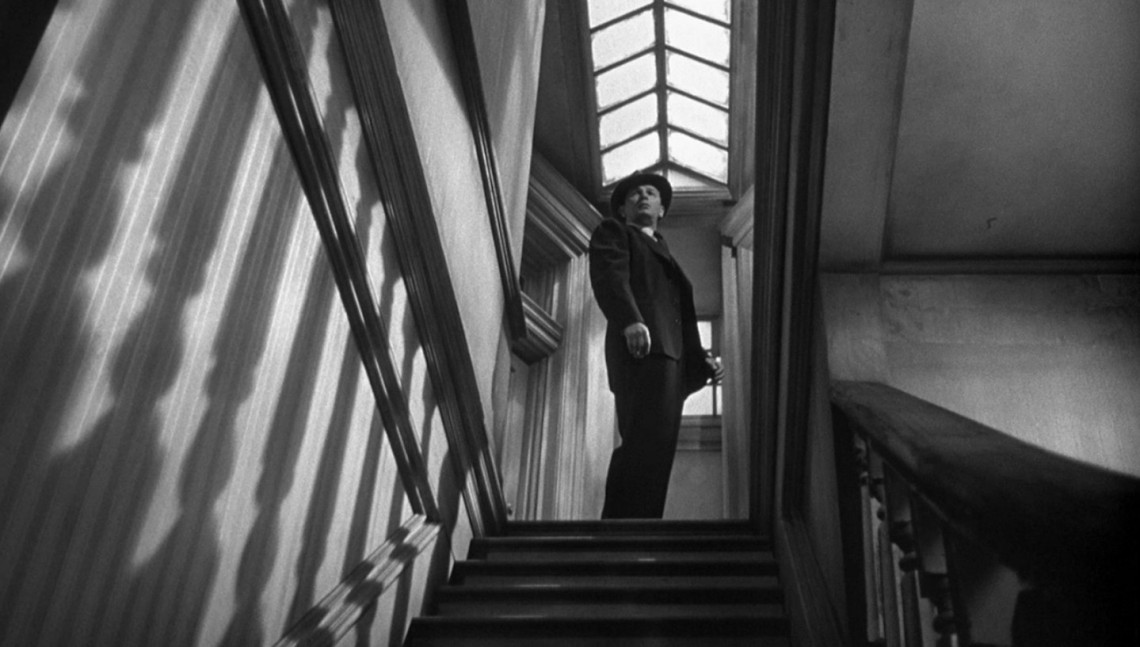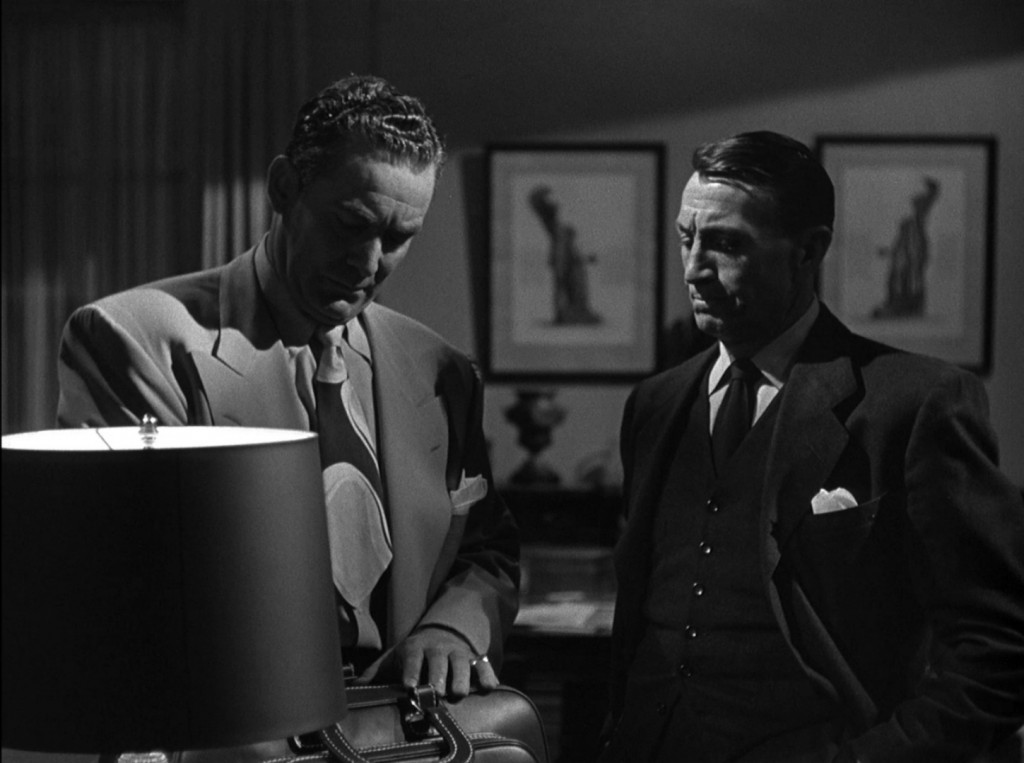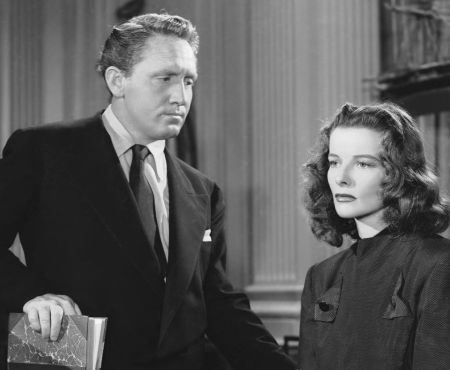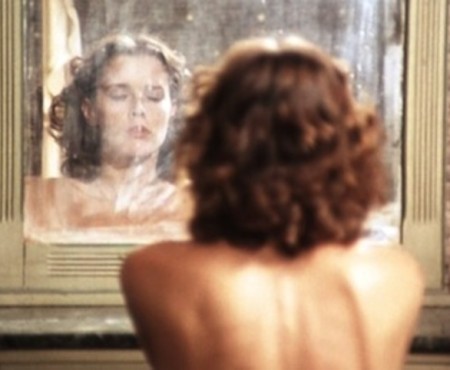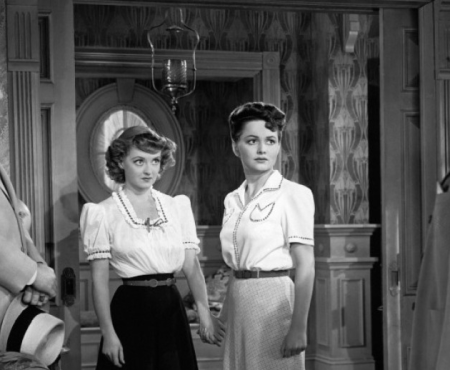When sniffing for evidence of “subversion” in Abraham Polonsky’s work, surely the House Un-American Activities Committee didn’t have to look much further than the opening of his 1948 directorial debut, Force of Evil. The camera tilts down from the New York skyline for an overhead glimpse of teeming crowds in the street. A voice is heard over the anthill panorama: “This is Wall Street. And today was important because tomorrow, July 4th, I intended to make my first million dollars.” The direct conflation of the inherent idealism of Independence Day with the obsessive accumulation of capital is typical of Polonsky, a filmmaker far more interested in questioning American values than in reinforcing them, and one who, over the course of a turbulent career, paid a steep price for doing so.
The voice in this loaded, trenchant preamble belongs to John Garfield, and at once the tinge of film noir is felt. A distinctively restless, wounded and feline presence in 1940s cinema, the actor had also by this time become a familiar face of doomed male desire, thanks in no small measure to his leading role in Tay Garnett’s indelible 1946 screen adaptation of James M. Cain’s novel The Postman Always Rings Twice. Though introduced emanating from the moneyed heights, Garfield’s voice in Force of Evil still retains the grittiness that’s so central to his proletarian persona, and no wonder: His character, Joe Morse, is a “wild boy of the streets” who has ditched the slums to become a lawyer for a numbers-running racket. Working for a powerful mobster (Roy Roberts), Joe devises a scheme that will lend a patina of legality to their shady business while at the same time bankrupting smaller, competing outfits throughout the city—a natural, practically evolutionary step, in their view.
Among the businesses about to be swallowed up by the sharkish maneuver is one run by Joe’s older brother Leo (Thomas Gomez). Next to the plush offices atop skyscrapers Joe is used to, Leo’s operation is strictly mom-and-pop level, with cramped rooms full of fatigued employees sorting through piles of nickels and dimes. (The siblings’ first scene together is astutely underscored by the faint but insistent clinking of coins.) Bulbous and hysterical where Joe is trim and tightly wound, Leo has the weak ticker and perpetually sweaty palms of somebody fully aware that his conscience is being devoured on a daily basis. When he claims to be “a legitimate businessman” at the very least exempt from his brother’s underworld connections, it sounds like the kind of hollow lie a desperate man tells himself in order to sleep at night. In a bizarre way, the more-corrupt Joe is also the more honest of the two, having accepted the need to remove all vestiges of scruples in order to succeed in their racketeering arena. “Money has no moral opinions,” Joe warns Leo later on, to which he responds: “I find I have.” It’s a measure of the ominous venality of Polonsky’s world that it is during the characters’ moments of principled awakening that they also seem most at risk.
The fraternal relationship is key to the film’s themes of responsibility and betrayal, with Abel and Cain explicitly referenced more than once. No less important is Joe’s tentative romance with Doris (Beatrice Pearson), a young employee of Leo’s whose fair integrity contrasts with the raven-haired vice of his statuesque mistress, Edna (Marie Windsor). Doris isn’t above being tempted by the “million-dollar ruby” that is shady wealth, yet it is in Joe’s scenes with her—especially a marvelous, extended seduction which unfolds in the backseat of a cab—that the possibility of emotional redemption emerges. Even while dismissing compassion as a “perversion” of human nature’s fundamental egotism, Joe can’t help but hint at a dormant but still vital conscience starting to seep through his hot-shot façade. As a shabby, anxious bookkeeper (Howland Chamberlain) sets the film’s cataclysmic third act in motion, however, it swiftly becomes clear that the path to salvation is anything but a simple one.
Running 79 rope-tight minutes, Force of Evil displays none of the awkwardness or incertitude often associated with the first films of screenwriters turned directors. The camera charts the characters’ struggle for power within a medium-distance frame in extended takes, until a sudden cut introduces a close-up. A telephone looms on a desk as ominously as one of Hitchcock’s talismanic objects, while a vicious shootout is staged in a darkened office illuminated by gun blasts. More than flashes of cinematic shrewdness, these are integral elements in Polonsky’s concept of a capitalist system characterized by exploitation, compromise and dread. (Cinematographer George Barnes was instructed to look at Edward Hopper’s paintings as the model for the film’s baleful environments.) A staple of Marxist philosophy, the connection between business and crime is hardly an original one in cinema, with examples ranging from epic treatises like Francis Ford Coppola’s The Godfather (1972) to termite studies like Byron Haskin’s I Walk Alone (1948). Yet few films did it as tenaciously or as strikingly: Force of Evil looks for the root of the engulfing shadows of film noir, and finds it not in a wicked femme fatale but in our eternal pursuit of money.
Polonsky’s vision is a wholly formed, tragic one: People are reduced to numbers (bills and coins, lottery digits, safe combinations, police records) in a society erected on greed, though there’s no mistaking the souls at stake when they reach for potentially tapped phones or descend stairways “to the bottom of the world.” The closing note of fragile hope feels especially moving now, knowing that Force of Evil would be Polonsky’s only film for more than 20 years. Blacklisted by the following decade’s McCarthy witch hunts and unable to start an European career like fellow hounded auteurs Joseph Losey and Jules Dassin, Polonsky would have to wait until 1969’s Tell Them Willie Boy Is Here to sit on the director’s chair again. Inactivity might be the worst punishment to inflict upon an artist, but the punchy noir poetry of Force of Evil still lingers and stings as a testament to Polonsky’s inquisitive outrage.

















